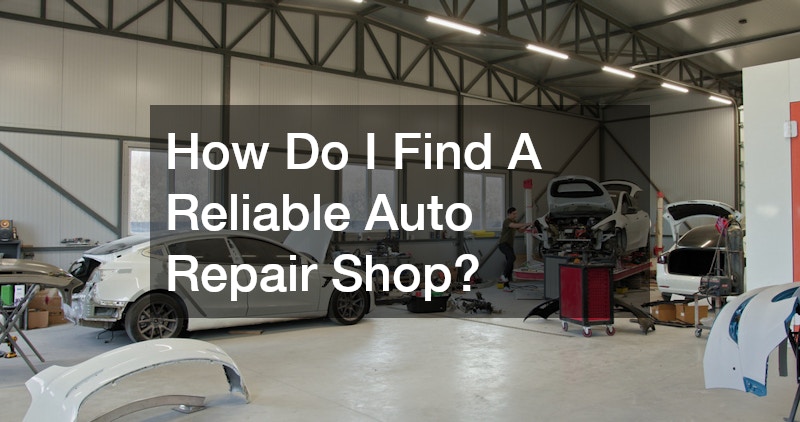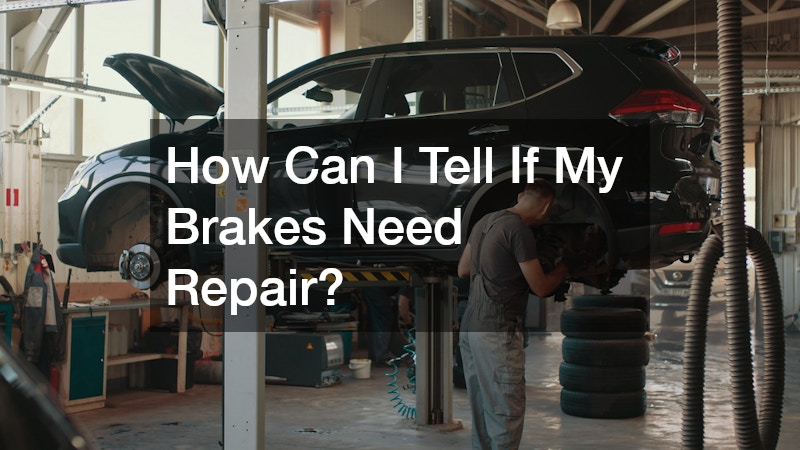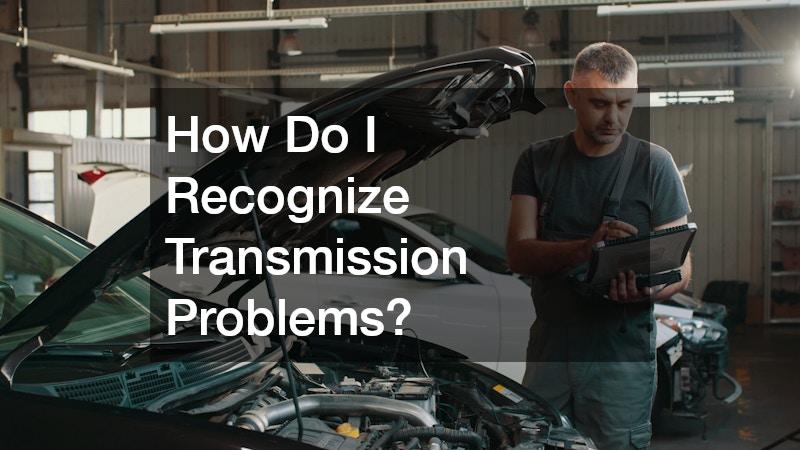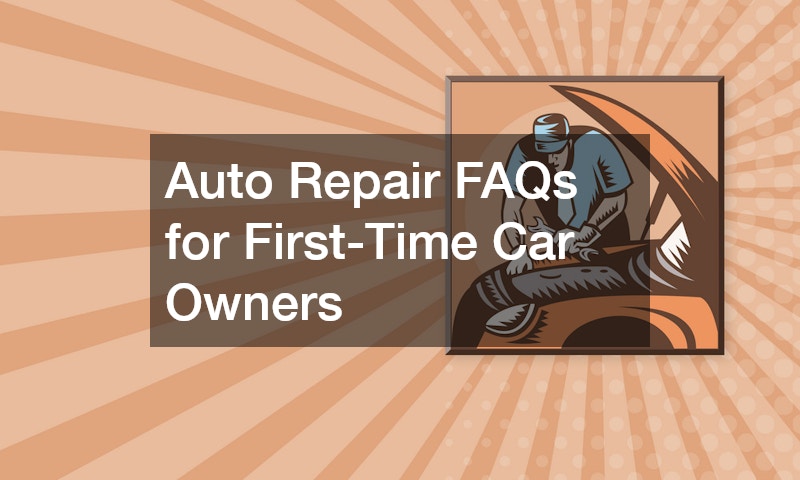
Owning a car for the first time is exciting, but it also comes with responsibilities that can feel overwhelming. From keeping your vehicle in peak condition to understanding when to visit a mechanic, first-time car owners often face questions about maintenance and repairs. This guide addresses some of the most frequently asked auto repair FAQs, helping you navigate the world of car care with confidence. Whether you are considering custom enclosed trailers for your adventures, seeking a reliable local mechanic, or curious about auto modifications, understanding the basics is essential.
What Regular Maintenance Should I Perform On My Car?
Oil Changes: Why And When
Regular oil changes are crucial for keeping your engine running smoothly. Engine oil lubricates moving parts, reduces friction, and helps prevent overheating. Most manufacturers recommend changing your oil every 3,000 to 7,500 miles, depending on your car model and oil type. Neglecting oil changes can lead to severe engine damage and costly repairs, even with a reliable auto repair shop nearby. Beyond oil and fluid checks, regular cleaning at an auto car wash helps protect your vehicle’s exterior and prevents corrosion from dirt and debris. Many auto detailers recommend monthly washes, especially after harsh weather conditions.
Tire Maintenance And Rotation
Car tires are your only point of contact with the road, so maintaining them is essential for safety and performance. Check tire pressure regularly, rotate your tires every 5,000 to 7,500 miles, and inspect for uneven wear. Regular tire maintenance extends tire life and improves fuel efficiency, whether you rely on local mechanics or auto modification shops for additional guidance. Tire care is frequently included in auto repair FAQs guides for first-time owners.
Checking And Replacing Fluids
Beyond oil, your vehicle relies on several other fluids, including coolant, brake fluid, transmission fluid, and windshield washer fluid. Regularly checking and replacing these fluids prevents corrosion, overheating, and potential breakdowns. Many auto detailers and local auto glass repairs services can offer tips for fluid checks during routine maintenance visits. Questions about fluid maintenance appear in nearly every auto repair FAQs resource.
Battery Checks And Maintenance
Your car battery powers everything from starting the engine to running electronics. Inspect your battery for corrosion, ensure terminals are tight, and test voltage regularly. Most batteries last three to five years, but environmental factors can shorten their lifespan. Staying proactive avoids unexpected trips to an auto repair shop or local mechanics. Battery care is a common topic in auto repair FAQs for beginners.
Importance Of Regular Brake Inspections
Brakes are critical for safety, yet many car owners neglect regular inspections. Worn pads, leaking brake fluid, or warped rotors can lead to decreased stopping power. Auto repair shops often recommend brake inspections every 10,000 to 15,000 miles to ensure your car remains safe on the road. Brake concerns are highlighted in most auto repair FAQs.
How Do I Find A Reliable Auto Repair Shop?

Research And Reviews: Getting Started
Start by researching local auto repair options. Look for reviews online, ask friends or family for recommendations, and check ratings on trusted platforms. Reliable auto repair shops often have positive reviews for their professionalism, transparency, and quality work. Finding trustworthy guidance is one of the top auto repair FAQs.
Certifications And Credentials To Look For
Certified technicians demonstrate expertise and adherence to industry standards. Look for shops that employ ASE-certified mechanics or other recognized credentials. This is particularly important if your vehicle requires specialized services like custom car wrap installations or work with custom enclosed trailers.
Comparing Prices And Services
Price should not be the sole factor, but it is important to compare quotes from multiple shops. Consider the range of services offered, warranties, and the quality of replacement parts. Local mechanics often provide competitive pricing, while specialized auto modification shops might charge more for custom services.
Building A Relationship With Your Mechanic
Developing trust with a local mechanic ensures that your car receives consistent care. A mechanic who understands your vehicle’s history can identify potential issues early, recommend preventive maintenance, and advise on auto repairs that keep your car in top condition.
Questions To Ask Your Auto Repair Shop
Ask about warranties on labor and parts, turnaround times, and whether OEM or aftermarket components are used. Clarifying these details helps you make informed decisions, especially when planning major repairs like transmission work or brake replacement. Asking about these matters is part of standard auto repair FAQs.
What Is A Diagnostic Test And Do I Need One?
The Purpose Of Diagnostic Tests
Diagnostic tests help identify issues in your car’s electrical and mechanical systems. Using specialized tools, mechanics can read error codes, detect malfunctions, and prevent costly repairs before they escalate.
Signs Your Car Needs A Diagnostic Test
Warning lights on the dashboard, unusual noises, poor performance, or fluid leaks indicate the need for a diagnostic test. Local auto glass repairs shops or auto detailers may notice issues during inspections, prompting a test at a qualified auto repair shop. This is a frequent topic among auto repair FAQs for first-time owners.
Understanding Diagnostic Trouble Codes
Diagnostic trouble codes (DTCs) are generated by your car’s onboard computer. These codes point to specific problems, allowing mechanics to pinpoint the source efficiently. Learning the basics of DTCs can help first-time car owners communicate effectively with local mechanics.
Cost Of Diagnostic Tests
Diagnostic tests typically cost between $50 and $150, depending on the complexity of the issue. Investing in a proper diagnosis often prevents larger, more expensive repairs, including transmission or brake problems.
DIY Diagnostic Tools
Affordable OBD-II scanners allow car owners to read basic diagnostic codes at home. While these tools do not replace professional evaluations, they provide insight into potential problems, helping you decide when to consult local transmission repair experts or auto repair shops.
How Can I Tell If My Brakes Need Repair?

Signs Of Brake Wear And Tear
Squeaking, grinding, or pulsating when braking indicates worn brake pads or rotors. First-time car owners should pay attention to these warning signs, as delayed repairs can compromise safety.
Importance Of Brake Fluid Maintenance
Brake fluid transfers force from the pedal to the brakes. Low or contaminated fluid reduces braking efficiency. Regularly checking and replacing brake fluid ensures consistent performance and prevents costly visits to local mechanics.
Regular Inspections For Brake Safety
Routine inspections by auto repair shops help identify issues early. Professionals can measure pad thickness, check rotor condition, and test brake performance, keeping your car safe on the road. Brake inspections appear regularly in auto repair FAQs.
Understanding Brake Noise
Not all brake noises indicate severe problems. Some squeaks may result from dust or moisture. Learning the difference between harmless and serious sounds is essential for first-time car owners to avoid unnecessary repairs.
DIY Brake Pad Replacement: Should You Do It?
While replacing brake pads is possible for experienced DIYers, most first-time car owners benefit from professional service. Using OEM parts ensures compatibility, safety, and longevity, which can be particularly important if your vehicle is still under warranty.
What Should I Know About My Car’s Warranty?
Types Of Car Warranties
Car warranties vary from bumper-to-bumper coverage to powertrain-only warranties. Understanding your coverage helps you know which repairs are your responsibility and which are covered.
What Is Covered Under Warranty?
Typically, major components like the engine, transmission, and electronics are covered. Maintenance services such as oil changes or tire rotations are usually excluded. Checking warranty details before scheduling repairs prevents unexpected expenses at auto modification shops or local mechanics.
The Role Of Warranty In Auto Repairs
Warranties reduce financial risk and encourage car owners to seek professional repairs rather than attempting risky DIY fixes. Local auto glass repairs or transmission services may require verification of warranty coverage before performing work.
Claiming Repairs Under Warranty
Always follow the manufacturer’s procedure for warranty claims. Documentation, service records, and authorized repair shops are often necessary to ensure coverage.
When Warranties Expire: What’s Next?
Once warranties expire, first-time car owners should maintain regular maintenance schedules and build relationships with trusted local mechanics. Preventive care minimizes unexpected costs and extends the life of your vehicle. Questions about warranties are a standard part of auto repair FAQs.
How Do I Recognize Transmission Problems?

Common Transmission Issues
Transmission problems can manifest as slipping gears, delayed shifts, or unusual noises. Ignoring these signs often results in expensive repairs at a local transmission repair shop.
Signs Your Transmission Needs Service
Difficulty shifting, warning lights, or fluid leaks are key indicators. Timely intervention by auto repair professionals can prevent total transmission failure.
Transmission Fluid: Importance And Maintenance
Transmission fluid lubricates gears and maintains optimal operating temperature. Checking fluid levels and replacing it according to the manufacturer’s schedule ensures smoother performance.
Preventive Measures For Transmission Care
Avoid aggressive driving, keep up with regular maintenance, and address issues promptly. Many first-time car owners benefit from learning preventive tips from local mechanics or auto modification shops.
Cost Considerations For Transmission Repairs
Transmission repairs can be costly, often exceeding thousands of dollars. Early detection through diagnostic tests or routine inspections at an auto repair shop helps minimize expenses. Transmission care is frequently addressed in auto repair FAQs.
What Should I Check If My Car Won’t Start?
Battery Health And Jump-Starting
Dead batteries are the most common reason a car won’t start. Testing battery voltage and jump-starting are the first steps. Auto detailers and local mechanics can provide guidance on proper jump-start techniques.
Starter And Alternator Checks
A failing starter or alternator can prevent your car from starting. Mechanics can quickly diagnose these issues and recommend repairs or replacements.
Issues With The Fuel System
Fuel pump failures, clogged filters, or empty tanks can all stop your vehicle. Checking fuel levels and system components ensures that the car starts reliably.
Ignition Problems: Spark Plugs And More
Worn spark plugs or ignition coils reduce engine performance and may prevent starting. Regular inspections by auto repair shops prevent breakdowns and maintain efficiency.
Role Of The Security System
Modern vehicles have anti-theft systems that may disable the starting. Understanding your car’s security features helps troubleshoot starting problems effectively.
Is It Necessary To Use OEM Parts For Repairs?
Understanding OEM Vs. Aftermarket Parts
Original Equipment Manufacturer (OEM) parts are designed by the car maker, while aftermarket parts are made by third-party companies. Both have advantages depending on the repair type.
Quality And Compatibility Considerations
OEM parts guarantee compatibility and maintain warranty coverage. Aftermarket parts may offer cost savings but can vary in quality.
Cost Differences And Value
OEM components tend to be more expensive, but they often provide better longevity. Weighing cost versus value is important when planning auto repairs.
Pros And Cons Of Using OEM Parts
OEM parts ensure performance and reliability, whereas aftermarket options can be more affordable but carry potential risks. Local mechanics can advise on the best choice based on your vehicle’s needs.
Warranty Implications Of Part Choices
Using non-OEM parts may void warranty coverage. Always check manufacturer guidelines before authorizing repairs at auto modification shops or auto repair facilities.
How Should I Handle A Check Engine Light?

Common Causes Of A Check Engine Light
A check engine light may indicate minor issues, such as a loose gas cap, or major problems like transmission malfunctions. Diagnostic tests can reveal the exact cause.
Steps To Take When The Light Comes On
Do not ignore the light. Check for obvious problems, schedule a diagnostic test, and monitor driving behavior. Local mechanics are skilled at interpreting these warnings.
Interpreting Error Codes With An OBD-II Scanner
An OBD-II scanner reads error codes and identifies affected systems. First-time car owners can use these tools to understand issues before consulting auto repair professionals.
Urgency Levels: When To Stop Driving
Severe codes related to the engine or transmission may require immediate attention. Driving with critical warnings can lead to expensive repairs or safety hazards.
Resetting The Check Engine Light
After addressing the problem, the light may reset automatically or require manual intervention. Understanding the process prevents unnecessary worry. Handling check engine lights is often one of the top auto repair FAQs.
What To Do In Case Of A Tire Blowout?
Immediate Actions To Ensure Safety
Maintain control of the steering wheel, gradually slow down, and pull over safely. Avoid sudden braking or turning, which can worsen the situation.
Replacing The Tire: Tools And Process
Having a spare tire, jack, and lug wrench is essential. Follow proper procedures or call local mechanics for assistance. Regularly checking car tires ensures that a blowout is less likely.
The Role Of Tire Pressure Monitoring Systems
Modern cars have sensors that alert drivers to low pressure. Maintaining proper tire inflation improves safety and prolongs tire life.
Preventative Measures For Tire Health
Rotate tires regularly, inspect for damage, and replace worn tires promptly. Auto repair shops and tire specialists provide guidance on maintaining optimal tire condition. Tire safety is a recurring subject in auto repair FAQs.
When To Seek Professional Help
If you lack the tools, experience, or confidence to replace a tire, seek assistance from local auto repair experts. Prompt professional intervention ensures safety and avoids further damage.
Being a first-time car owner comes with challenges, especially in understanding auto repairs. From routine maintenance like oil changes and tire care to recognizing transmission problems or handling a check engine light, this guide covers essential topics to build your confidence. Knowing when to visit local mechanics, auto repair shops, or specialized services like custom enclosed trailers, custom car wraps, and auto modification shops ensures your vehicle stays in top condition. With proactive maintenance and informed decision-making, you can enjoy your car with peace of mind and avoid costly surprises. Topics like these are commonly included in auto repair FAQs, helping first-time owners navigate vehicle care effectively.
